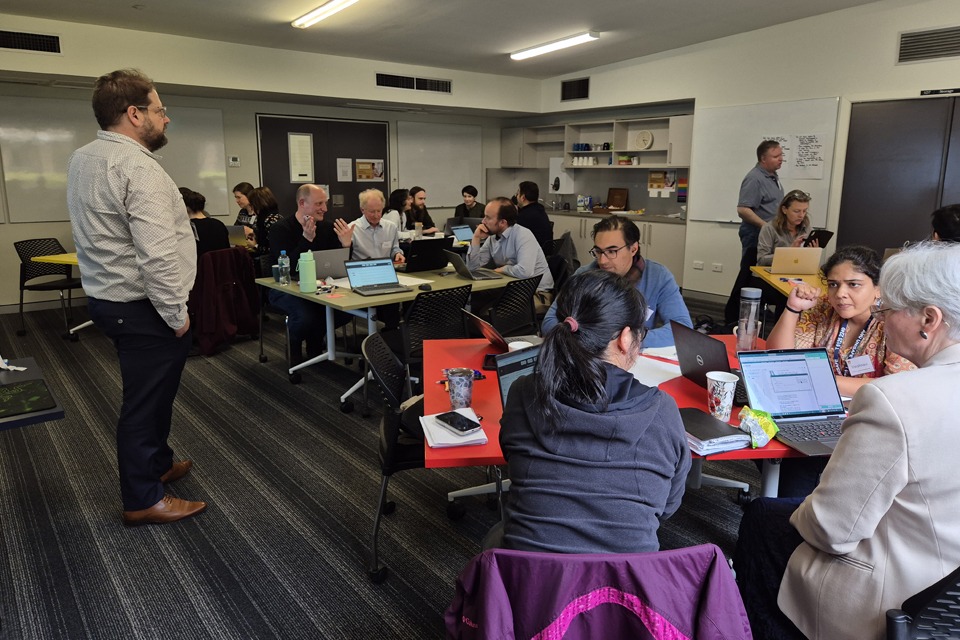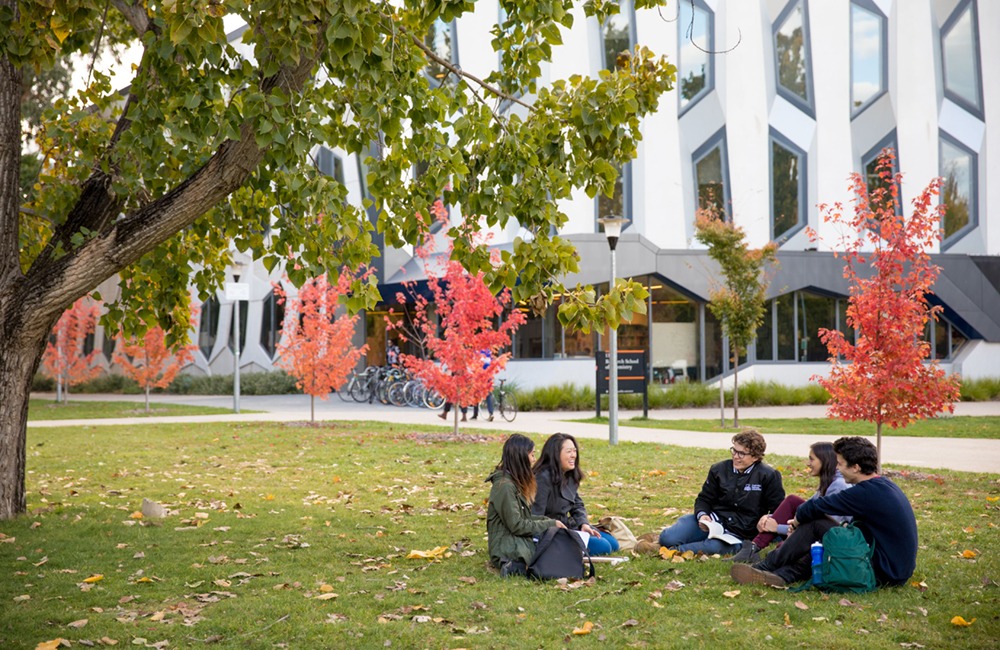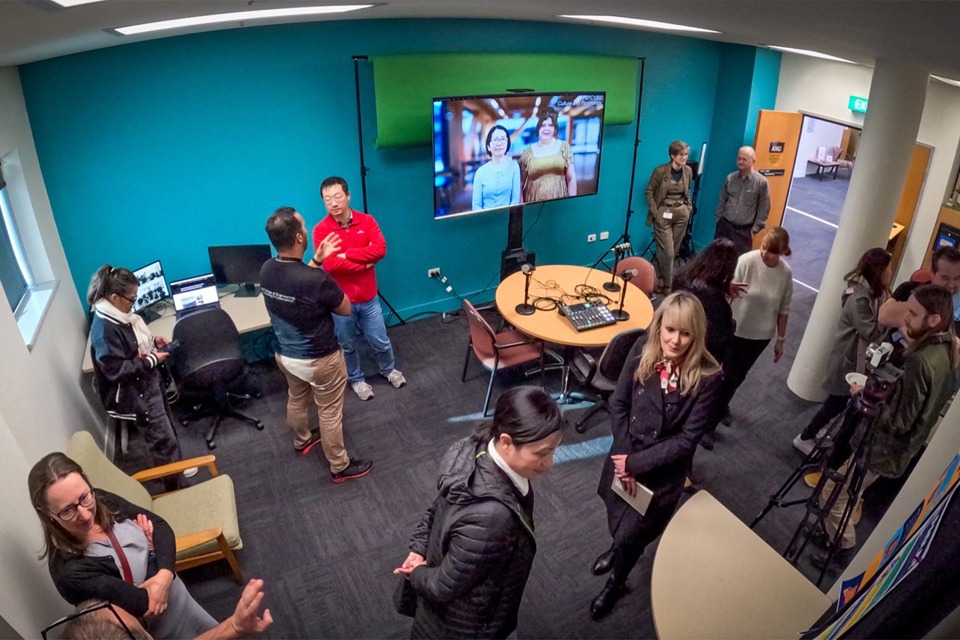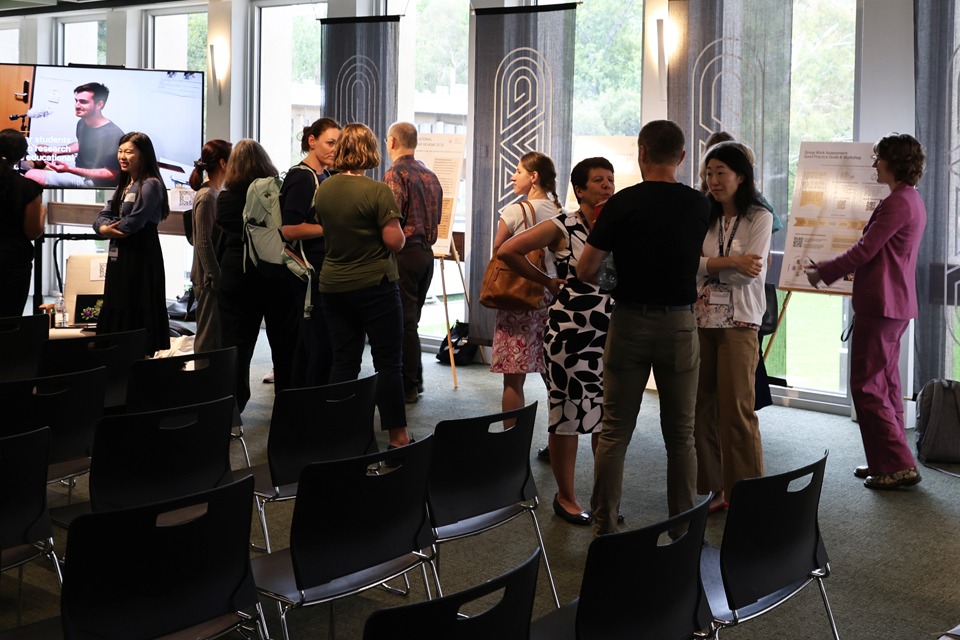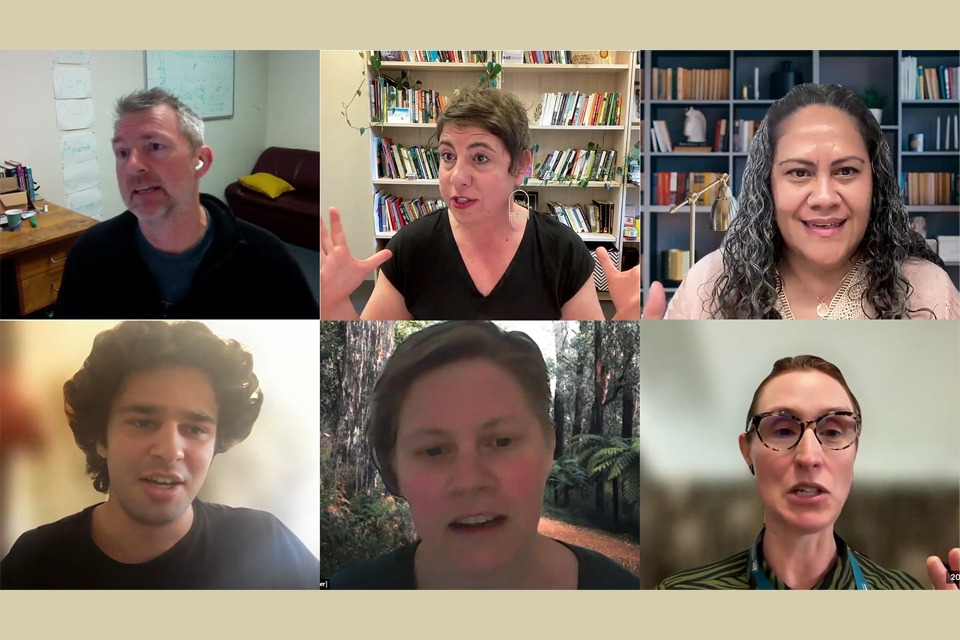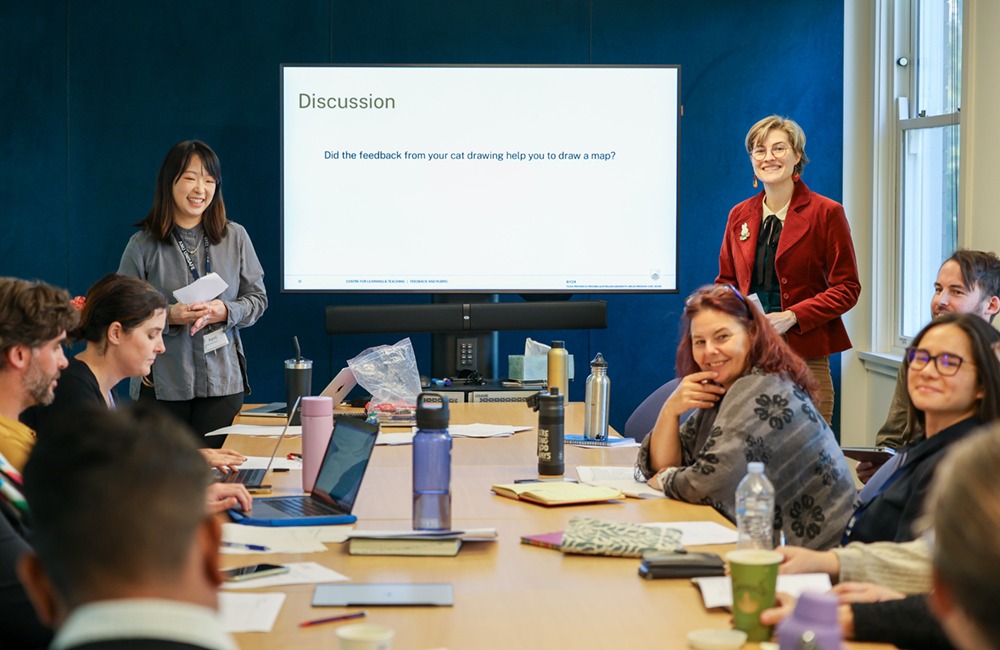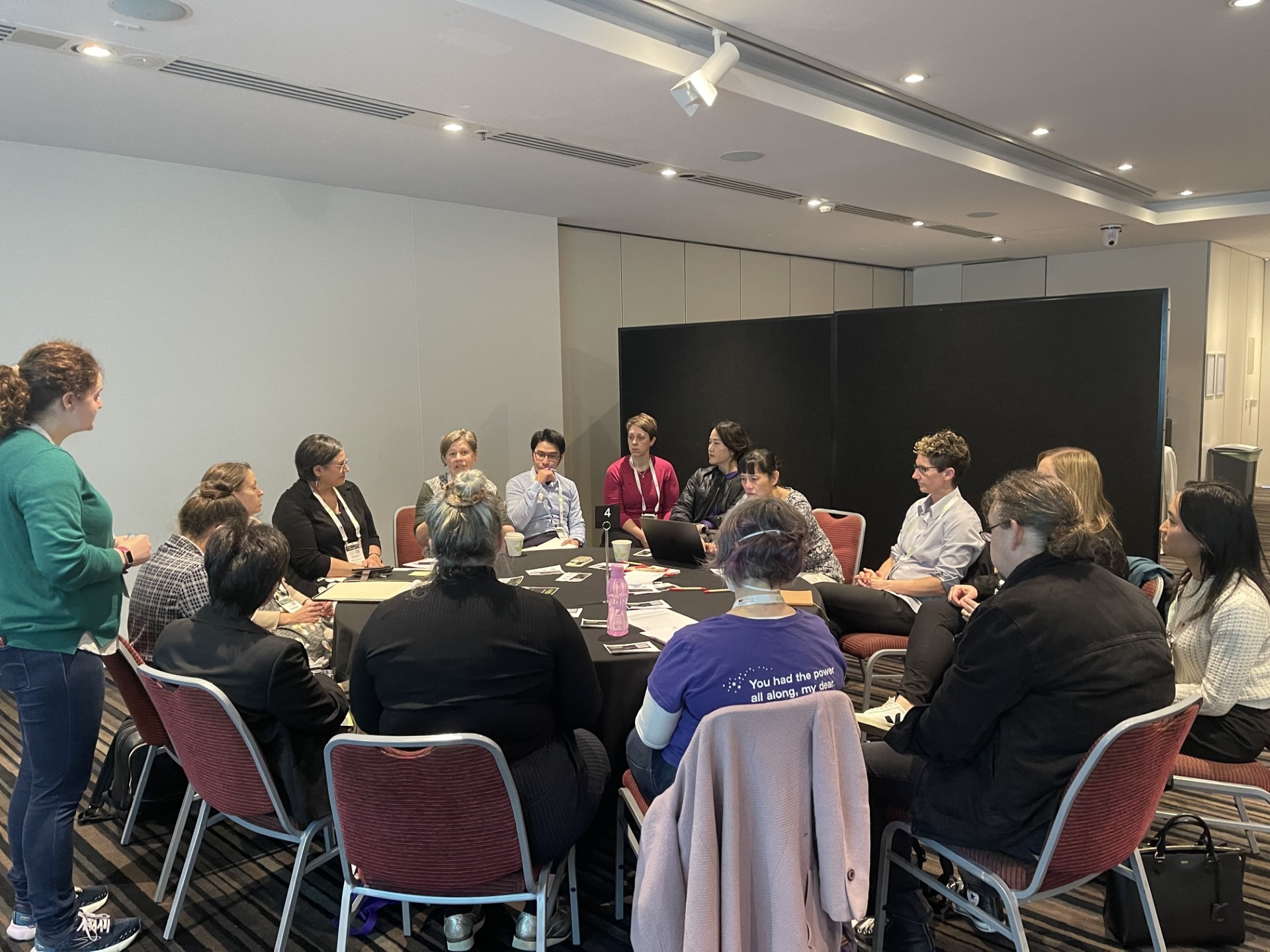The remote student experience – Wrap up
The need for empathy, flexibility, and connection emerged as themes from what was a lunchtime conversation for Canberra-based people, and a pre-breakfast event for our panellists. With Covid heavily influencing everyday living and our ability to travel, most international students continue to study from offshore locations. On 19 August, ANU staff were invited to walk in their students’ shoes and hear some firsthand experiences. The conversation, at times heartbreaking, was an important opportunity for the ANU community to listen and respond at a time when everyone is working, teaching and learning remotely.
Experiences of remote learning from China, Malaysia and India were shared by the all-student panel: Aishani Sambasivam, Billy Lyu, Stella Li and Isha Singhal. The students, from a variety of disciplines and program levels at ANU, shared practical strategies that could be applied by course conveners, tutors and ANU more widely to improve the university experience for offshore students.
The Chair of the session, Dr Katerina Teaiwa, framed the discussion in the “context of both lecturers and students in all their diversities and with all their challenges” through the pandemic and the available resourcing of teaching and learning. Katerina acknowledged that an important purpose of the session would be to “think about community…think creatively and critically…about how to improve the quality of our teaching and learning while thinking compassionately about the situation and context that everyone is in all over the world and in Australia and Canberra.”
A recurring message from students was that a little effort goes a long way, and empathy and understanding from conveners and tutors can make a huge difference to remote students feeling acknowledged. Aishani commented that “it really feels like we don’t exist in this system. With the pandemic disrupting our learning and university experience, it is bad enough. So I really hope that the University would do its best to provide a more planned and coordinated effort to improve the overall experience.” It was clear to the audience that every student is entitled to an equitable, high-quality teaching and learning experience, and ANU must do better in delivering this.
Some recent experiences shared were disappointing. These included:
- the use of old lectures with no attempt to edit, update or contextualise them
- a lack of live sessions in some courses
- lecturers not repeating questions from the floor and pointing or referring to off screen resources during live or recorded lectures
- no access to PowerPoint slides to support recordings
- poor quality of audio recordings
- recordings that are cut off, where it is obvious that discussion continued.
Disappointing, because, as one of the attendees put it, “this session is so heartbreaking because so many of these issues are so easily fixed.” Aishani commented that it is “ironic and unfair that a lockdown in Canberra is the only way our learning quality improved over the past few weeks… the live Zoom lectures have started again, there are notes for labs…they livestream the labs and they record it for people who can’t attend. That shows how inconsistent these efforts can be sometimes…now I worry that once Canberra handles the situation, we’ll go back to a poor quality of learning…it should be the University’s responsibility to ensure that all students get a good quality of learning.”
It was acknowledged that there have been many improvements to the situation since 2020. Some conveners and tutors have made effective adaptations to improve the experience for remote students. Examples shared included:
- polling students on time zones and adjusting tutorial times accordingly
- check-ins at the start of live sessions which build connection with and between students
- encouraging the use of cameras during live sessions
- opportunities for interaction and group work
- the use of tools such as Piazza to support student interactions with course content and each other
- provision of digital texts, particularly those with interactive features
- task adjustments and extensions for students in difficult situations.
These actions reportedly have a positive impact on the learning, connectedness and wellbeing of offshore students.
Isha, as a representative of the ANU Students’ Association (ANUSA), was able to share collective student experiences throughout the session. Differences in time zones emerged as a common challenge for students, with impacts on live classes, exam scheduling and response times to email communications. Living situations that often involve caring responsibilities further compound the issues created by scheduling of course sessions or exams in the early hours of the morning. Universally, this was reported as reducing students’ ability to participate effectively in learning activities and assessment. ANU has endeavoured to address this through scheduling future exams during the afternoon, Canberra time. Delays in email communications were identified as on ongoing pain point for remote students, with time differences reducing the window for email responses.
Billy noted that the ANU Study hubs established in his city and three other Chinese cities in response to the pandemic have been a positive initiative. Unfortunately, these are not available for all offshore students and many remain socially isolated. Tips about how this could be improved included:
- offering tutorials/labs to cater specifically for remote students
- increasing the availability of interactive live sessions in courses, linked with assessment tasks
- using Wattle forums to enable students to post and respond to questions, to reduce reliance on email communication with lecturers
- improving labs through livestreams and more support information for lab tasks
- offering online social clubs.
For a comprehensive list of tips, shared practical strategies that could be applied by course conveners, tutors and ANU more widely to help create a high-quality university experience for offshore students, please see here.
The session was powerful in highlighting that the situation facing offshore students during the pandemic is a tangible barrier to learning and mental wellbeing. Stories were shared of students taking study breaks or seeking education in countries where borders have reopened. Stella called for “more candid communication from the University” so international students can deal with the reality of the situation. The dialogue between panellists, the Chair and the audience flowed with a mutual openness via live discussion, the chat tool and continued in breakout rooms. It was an essential conversation, and one that needs to be shared more widely so actions can be planned and taken to continue to improve the university experience for our offshore students, and all ANU learners more broadly.
Lunch Vox #6 : Q+A Session (full)
Bonus video
Hear from Nitya Narasimhan, who shared her experience with the team during a meet & greet earlier this year.
Lunch Vox #6 – Full Session
Lunch Vox #6 was presented by CLT in collaboration with the ANU Experience Accelerator.
We would like to thank all students who participated in this project: Pavan Idnani, Stella Li, Billy Lyu, Nitya Narasimhan, Hebe Ren, Aishani Sambasivam, Srishti Singh and Isha Singhal. If you would like to get in touch with one of the panellists, please contact clt.comms@anu.edu.au.
Watch the video and read our wrap-up from previous sessions.
